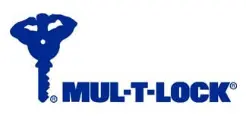Replacement lock brands we use





We cover Ponders End and the surrounding areas.
What we do:
Inspection
Upon completion of an inspection of the current state of your fire doors, we will provide a report to you detailing any necessary remedial work you may require.
Our products are approved by the FDIS (Fire Door Inspection Scheme) and we have the expertise to deliver the best advice possible.
In addition, we will check the doors for respect to your building’s compartmentation.
Repair
Fire doors or door furniture that require and are suitable for repair can be maintained to keep the fire door rating.
Installation
If you need additional or replacement fire doors, we can do this quickly and effectively with certified products and approved installation techniques that comply with the updated BS 8214 code of practice.
We provide an inventory of recommendations and the work that is undertaken, which you can use to comply with regulatory requirements.
Why use the locksmith fire door services from EN3 Locksmith Ponders End?
A EN3 Locksmith Ponders End locksmith fire door service is an expert in passive fire protection and compartmentation. We make no recommendations about specific manufacturers so we are free to recommend products to our clients based on their specific needs.
Products which we recommend or supply comply with the legal requirements of the Regulations Reform (Fire Safety) Order 2005 and with building regulations.
NAPFIS (National Association of Passive Fire Installers and Specifiers) is proudly a member of EN3 Locksmith Ponders End. As a member, our work is independently examined to ensure its compliance with British Standards and the various laws about fire doors. We offer highly competitive prices.


Why are fire doors important, and what do they do?
If a fire occurs, limiting how quickly it spreads throughout the building is of paramount importance. During an indoor fire, the flames spread in a matter of seconds. Smoke could spread from one room to another in a matter of minutes.
Once the flames reach the ceiling, temperatures of about 550°C are quickly reached. In order to protect your business and property from a fire, it is important to have fire doors installed.
In the event of a fire or smoke, properly installed and adjusted smoke detectors can give an early warning, allowing time for the evacuation of the building and arrival of Emergency Services. In addition, they offer occupants of the building a safe exit.
Fire doors prevent the spread of smoke and fire.
You can purchase them in various categories and levels of fire-retardant protection, indicating how long they will last.
It depends on the type of building, its use, and where the door is placed within the building whether the door requires a specific category. There are doors with resistance up to FD240, which incorporate zinc-plated steel, with a resistance of 4 hours.
A door’s rating is taken into account not only for its appearance but also its features like hinges, frames, seals, glazing, etc.
It is recommended that fire doors comply with the various parts of the BS 476 standard fire tests, specifically BS 476-22 and BS 476-321.


Fire doors may have either a hollow or solid core, and they may have framing or lipping around this core.
Around the door there are seals that prevent air from entering. Fire and smoke cannot penetrate the seals because they swell when exposed to heat.
The doors are typically painted or veneered, and the glazing is optional. In addition, there are also mandatory items of furniture that must be fire rated.
We offer assistance and advice regarding fire door repair, inspection, and replacement, so get in touch with EN3 Locksmith Ponders End.
What is the frequency of fire door inspection?
To ensure that your fire doors are functioning correctly, you need to check them regularly. BS 9999 is a code of practice developed by the British Standard Institution, which provides the best practice framework for fire safety.
BS 9999:2017 is the most recent edition of this standard and, in Annex 1, it recommends that all fire doors must be inspected at least six times a year. You also need to check how easy your door opens on a regular basis, whether on a daily basis or monthly basis, depending on your door’s closure system.

Moreover, fire doors are required for loft conversions and garages that integrate into the building.
Fire doors and the law
When you own or operate a business in England or Wales, you must comply with the requirements of the Regulatory Reform (Fire Safety) Order 2005, in which fire doors are an essential part.
HM Government has made the booklet available here for download. Fire Safety Orders came into force in October 2006.
Businesses are not the only ones affected by the Order. Order 2005 covers all property owners, including a landlord or managing agent of a rental property.
Commercial properties must have a fire and safety inspection, and during this inspection, you will be advised about the need for fire door installation.
There is a legal requirement for flats that have common areas to have fire doors. Further information on fire doors for buildings other than domestic houses can be found in Building Regulations 2010 – Fire Safety: Approved Document B.
The fire door may be required to separate stairwells from any rooms except toilets and bathrooms in a home that is more than two storeys high, for example.
